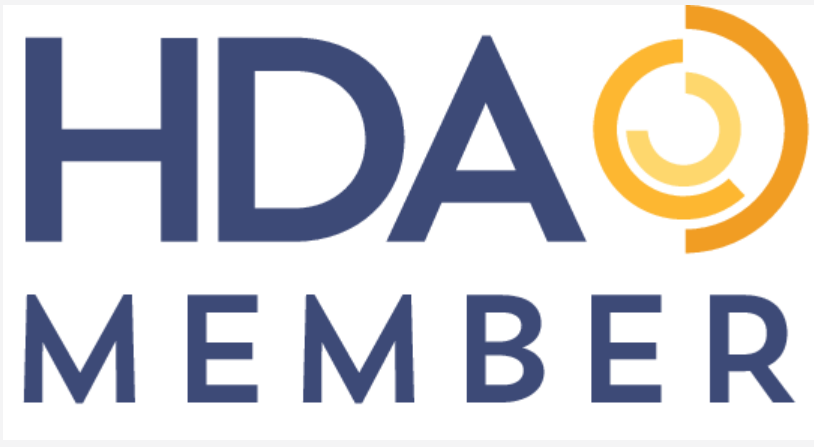HDA DSCSA Survey 2021
HDA Publishes Serialization Readiness Survey with Useful Insights
The Healthcare Distribution Alliance recently released their annual survey to share "the current readiness of manufacturers and distributors to meet the Drug Supply Chain Security Act (DSCSA) requirements." The survey contains useful insights on how the industry is doing in the path towards DSCSA 2023 including the challenging interoperable requirements.
Full survey found here: https://www.hda.org/resources/2021-serialization-readiness-survey
HDA has done a great job of continuing to advance this survey and we feel it is the most comprehensive and telling DSCSA related survey going. We continue to remain hopeful that dispensers’ insights will begin to be more highlighted through their trade groups and other efforts, but those trade groups would do well to take note from HDA's survey. This survey continues to show areas that are progressing or lacking along with both a high-level executive look and detailed comments shared from participants that can serve as useful nuggets of information. We recommend looking through the detailed comments shared at the end of the survey as a sampling of thoughts and challenges. It is beneficial to the industry that this report is offered for free download so that even the smallest and most financially challenged organizations can benefit.
We thought it would be good to help keep the conversations going by sharing our key takeaways from the report. Here are things that jumped out from our review of the survey.
Manufacturers:
- Aggregation appears to have moved squarely into the "fully expected by the industry" with only 2.6% of manufacturers saying they do not currently plan to aggregate by Nov 2023. Any not planning to adopt aggregation should expect to face challenges moving data required to keep product moving safely to patients.
- EPCIS transmission from manufacturers continues to grow but still showing less than 30% have started sending and 52% expecting to start in 2021. Our belief is this adoption pace could make 2022 and 2023 years of heavy trouble shooting and put a strain on experienced technical resources as Nov 2023 approaches.
- GS1 EPCIS version 1.2 appears to have become the most widely implemented for manufacturers (around 88% of those implemented) and we believe is likely to be more and more required as a minimum version.
- VRS (Verification Router Service) appears to be the most expected form for manufacturers to offer to support distributor saleable returns verification with over 97% indicating versus 61% relying on EPCIS. Our belief is that manufacturers are likely also considering the requirements to support dispenser or regulator verification requests in the future. As was mentioned in the HDA efforts around verification in the past, both EPCIS and VRS will likely be needed to support the variety of trading partners and scenarios involved in DSCSA.
- The biggest concerns on overall DSCSA implementation from manufacturers include: (39%) Governance of the interoperable system, (14%) Collaboration with trading partners, (14%) Differences in interpretation of the law.
Distributors:
- Nearly half (44%) of distributors expressed concern on meeting the saleable returns verification requirement. Top concerns were (73%) challenges with VRS, (64%) accuracy and completeness of data, (55%) challenges with EPCIS files.
- VRS appears to be the most preferred approach long term with 72% planning this approach versus 56% for EPCIS and a surprising 24% mentioning manufacturer's portal. We suspect the portal approach may be distributors with a smaller number of products to manage but may indicate the need for such a method (either directly or through a solution provider) for some manufacturers.
- Efficiency and automated approach were the two most important factors for verification requirements.
- 60% of distributors indicated an ability to accept serialization data today which is a promising advancement but is also an important dependency to manufacturers ability to start sending. This is highlighted by 50% of those not yet accepting data have pointed towards 2023 as the year they plan to start accepting.
- Master data methods continue to evolve with majority (59%) still relying on HDA new product form and (53%) relying on spreadsheets.
- For interoperability to advance without product setup data hang ups, we believe there will need to be an increase in use of methods that allow more widely aligned automated methods such as (currently 24%) GS1 GDSN or (currently 12%)HDA Origin.
- Similar trend as manufacturers for EPCIS 1.2, with 81% mentioning use of this GS1 version.
- The biggest concerns on overall DSCSA implementation from distributors include: (84%) Collaboration with trading partners, (64%) Technical challenges, (44%)Differences in interpretation of the law, (44%) Establishing standards.
- There are useful stats on distributors perspective on their dispenser customers including a belief that 64% of dispensers have a considerable variation in their understanding of DSCSA 2023 and beyond.
We encourage all stakeholders in DSCSA to download this survey and consider how it impacts your plans and interactions with trading partners, trade groups and all the industry work on DSCSA 2023.
We would love to hear others' insights so feel free to add comments through our posts on the blog or through LinkedIn, Twitter or Medium!




